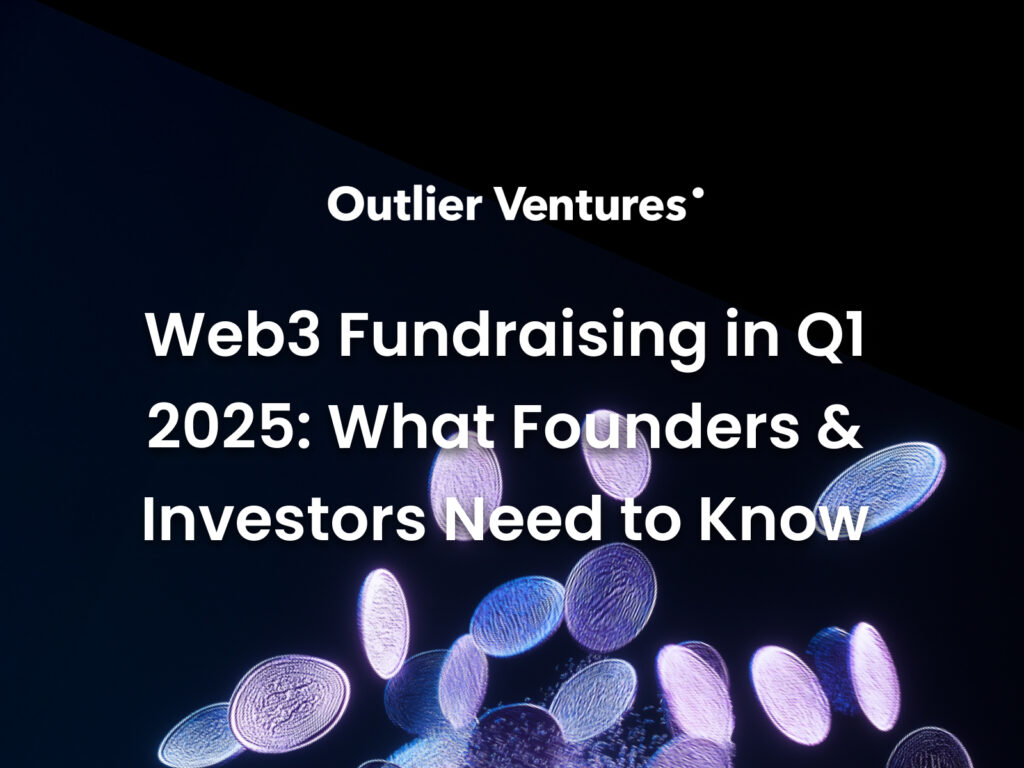We’ve compiled the 15 most frequently asked questions to point founders in the right direction.
0. Preamble
It is reasonable to assume that the cavalier “move fast and break things” mentality that prevailed during the Wild West days of crypto is no longer desirable for good or ill. We think this is definitely for good rather than ill, and the following explains why…
1. Are there any Web3-savvy lawyers out there? What do lawyers know about Web3 anyway?
If your project is to succeed, it is imperative to have the necessary legal requirements in place at the outset of your Web3 entrepreneurial journey.
If legal and compliance considerations are an afterthought, teams can find themselves re-designing their products to be compliant, causing detrimental delays to product deployment and investment traction.
It is difficult to get something undone and then redone when the product has been fleshed out and defined based on a significantly different set of legal requirements. To add insult to injury, fees for re-engineering legally knotty issues can be excessively high. Bringing in a legal expert at the outset to oversee matters such as structuring your organization can save much time, money and heartache.
2. How will Outlier Ventures help us structure our Web3 legal entity?
We do not provide legal, regulatory or tax advice and anything Outlier Ventures analysts, associates or managers express should not be construed as such. Outlier Ventures strongly encourages your team to partner with a Web3-savvy legal counsel to help you navigate legal, regulatory and tax complexities.
However, our unique perspective can help give you the information you need to decide what’s best for your business.
3. If so, how should we see our engagement with Outlier Ventures?
Outlier Ventures shares educational content, best practices and information all distilled from our nearly 10 years of experience as the world’s leading accelerator in the Web3 realm. This gives us the privilege of being uniquely positioned in a very competitive and rapidly evolving space. Our common goal is to get you to the fundraising point and position you in front of investors as soon as possible. Incorporating in a crypto-friendly jurisdiction, developing a token, fulfilling authorisation requirements, and implementing AML/KYC are some of your project’s Web3 key fundraising readiness criteria. We will also help you anticipate any future legal needs.
Ultimately, however, it is entirely up to you, the founders/builders of the Web3 ecosystem to reap the harvest of your engagement with the Outlier Ventures network of specialists, advisors and investors and achieve your maximum potential.
4. What’s our main legal goal at Base Camp?
Our support during Base Camp takes the form of workshops on topics like Equity Structuring and Fundraising, Token Structuring and Fundraising, DAO legal wrappers, NFTs, and IP. Once you have confirmed your participation in Base Camp, during our Legal Deep Dive and our one-to-one discussion in the beginning of the programme we will draw up a legal roadmap tailored to your needs. During the main course of Base Camp, we’ll have the chance to discuss legal blockers that may impede the acceleration of your project and find solutions. Preparing you for fundraising is our ultimate goal, so ad hoc support will be given during the last two weeks of the programme, if needed.
5. We already have a legal counsel. Do we need more?
Over the years, we have cultivated a network of top-notch legal specialists across all fields, from entity incorporation and corporate structuring to IP and tax issues. Following an assessment of your needs early on, we will help you construct your legal roadmap and connect you with legal counsels suitable to your project.
6. We have already set up our legal entity. Is there anything left to do?
Although Web3 legal structuring borrows elements from the traditional Web2 and general startup corporate structuring, it is a fast-developing practice characterized by a high level of subtlety. You may need to consider taking advice from a Web3 lawyer with regard to your structuring and the issuance of tokens, if token issuance is within your project’s immediate horizon.
7. Where should we register our Web3 company?
Once you have figured out which entity is best for your project’s needs, deciding on the country where you will incorporate one of your entities is critical. We provide you with specific metrics and indicators, such as country-specific corporate laws, regulatory requirements for crypto and blockchain companies, tax regimes, level of bureaucracy and timelines, and reputational considerations for investors.
Reports measuring the friendliness to crypto can be temporarily useful but become obsolete relatively quickly, as regulation around the multifarious factors that constitute this friendly scoring vary wildly from month to month. Predictably, the stable number of crypto-friendly jurisdictions, like the Cayman Islands, BVI, and Switzerland is quite limited or increases infinitesimally.
Crypto-friendliness should be only one of the factors that contribute to your decision, with the maturity of the financial ecosystem, such as access to banking services and the level of sophistication of the competent national authorities, being equal determinants. Needless to say, those factors should follow in subsequence of product deployment and market targeting decisions.
8. Do we need a separate entity for issuing tokens?
The issuance of tokens requires setting up a company in jurisdictions that have a Web3-specific regulatory framework that explicitly provides for the issuance of tokens. These are the so-called “crypto-friendly” jurisdictions. When we say crypto-friendly, we mean a jurisdiction that has a well-defined set of regulations and a clear legal framework governing digital assets, in the sense of how the issuance of, and fundraising through, digital assets are regulated.
A token sale is a distribution method of many forms, each of which comes with different legal requirements. You can either do a private token sale, called Simple Agreement for Future Tokens (SAFT) or Token Pre-Sale Agreement (TPSA), or a public sale through a Token Sale Agreement or listing on a cryptocurrency exchange. We strongly encourage you to receive a legal opinion from a Web3 lawyer on your token. That will not only give you the extra layer of protection that you need when issuing tokens which might be deemed as securities for the wrong reasons but it is sometimes, if not always, a contractual obligation for listing your token on a centralized exchange.
Note that the requirements for issuing and distributing a token relate to its legal qualification. The treatment of a utility token from a security token is generally more favoured by the regulators, and the compliance requirements with local laws are easier.
9. How should we sell tokens to investors?
Token sales have a short yet tumultuous history of fierce legal battles between, mainly, the US authorities and token issuing companies.
For companies seeking to offer tokens to investors, there are three methods to consider when selecting, or a mix of them: companies can offer tokens through a private sale, a public sale and through an airdrop.
In private sales, tokens are offered to accredited investors (in the US) or high-net worth individuals (in the UK) through a Simple Agreement for Future Tokens (SAFT), a token-based instrument modelled on Y-Combinator’s Simple Agreement for Future Equity (SAFE) to be extended only to sophisticated investors, by design. Alternatively, a Token Purchase Agreement or a Token Side Letter (Token Warrant) could be used for the private token transactions.
Cryptocurrency exchanges and launchpads help facilitate public token offerings. If you opt for the public token sale option, then you need to obtain legal support from an experienced Web3 lawyer; their assistance for the token launch, among many others, would be much needed. Digital asset exchanges or launchpad platforms require a legal qualification of your token, a convention that started with the qualification of ether before the Ethereum ICO in 2014, arguably the inaugural token requesting such an opinion from a lawyer.
Finally, early backers of your token can be rewarded with free tokens through the now infamous airdrops. As the SEC has taken action against airdrop token offerings, those should typically exclude US citizens.
10. What is a SAFE?
The SAFE agreement was developed by the Web2 accelerator Y-Combinator in 2013 and it represents, in its simplest version, the founder-friendly variant in the recent history of convertible securities used by startups in their seed financing rounds.
In a nutshell: investors fund you now in exchange for a promise to your company’s equity in the future. This “promise” is activated by a contractually-agreed “triggering event”, which is usually a priced funding round.
The mechanics and the nuances of the SAFE have made it not so simple over the years. Through our workshop and our engagement during Base Camp, we will get a better idea of what notions such as valuation cap, pre-money and post-money, discount rate, warranties, representations, cliff and vesting and the like really mean.
11. What is a SAFT?
Quite simply a Simple Agreement for Future Tokens, or a Token Pre-Sale Agreement, is an investment contract between you and investors stipulating the process of generating and selling tokens. It works in a very similar way to a SAFE and under very similar principles.
12. What is a SAFTE?
Another instrument available for fundraising is a SAFE with a token component to it. This method provides you with the option to offer equity to your investors, if you’re raising via a SAFE round, and you haven’t decided whether you will be issuing a token in the future yet you want to keep these investors in the game.
13. SAFE, SAFT, SAFTE, and Token Warrant? What’s the right approach?
The truth is, there isn’t a “one-size-fits-all” approach and since it is a very nuanced question, the right approach really depends on a number of different factors. The most important of these is situated at the core of your business, namely the development of an MVP and a USP that render the creation of tokens a necessity. Developing and distributing a token is a long-term process, so using a SAFE with a token side letter, or token warrant is the investment strategy that attracts both traditional investors, typically interested in equity, and Web3 investors that recognize the potential in your project. Keeping the latter aboard is done successfully via the token warrant instrument.
14. We’re facing several administrative issues. How can you assist us in finding a solution?
Obtaining a tax number or opening a bank account may sound as trivial matters, yet we have seen projects struggling with them for months. We are here to support you and unravel (or simply cut through) these obnoxious knots together.
15. We’re thinking of creating NFTs. What are the IP-related considerations we should be aware of?
Intellectual Property rights are basically the mechanism through which the legal system recognizes ownership and exploitation rights of various forms of creative output. The protection of IP rights has lots of different forms, like patents and trademarks, but perhaps when we’re discussing NFTs, copyright is the main form of IP protection.
There are a number of different reasons why IP is so important to any kind of project that is looking to create and exploit NFTs, particularly due to the fact that the value that is created through an NFT is situated in the intellectual property. Structuring IP rights effectively is quite subtle and can prove extremely beneficial or detrimental, if done recklessly.
16. What about DAOs? If we decide to build a DAO for our project, do we need a legal wrapper?
The question of decentralization is one of the new intriguing concepts that Web3 startup founders may be puzzled about. We won’t dive deep into more nuanced questions like decentralized governance here; however, it would suffice to say that from the moment the Commodity Futures Trading Commission brought an enforcement action against a US DAO, the era of nonchalantly doing business through unincorporated decentralized entities has irrevocably passed.
It is strongly encouraged that you consider wrapping your DAO, either its entirety or limbs of it, with an appropriate legal entity. By doing so, you avoid undesired consequences such as triggering an enforcement action for the offering of unregistered securities or a class action with your DAO being treated as a general partnership where every token holder or DAO member has unlimited liability which can prove detrimental in case of a hack or a token theft, and, last but not least, an unfair tax treatment of you or a linked entity.
DAO legal wrappers, in other words legal entities that serve as proxies between the world of traditional finance and the Web3 realm of decentralized finance, can take many forms; from DAO-specific corporate legislation in various jurisdictions like Colorado, Wyoming or the Marshall Islands to legal entities that undergird DAO structures like the Swiss Foundation, the Cayman Foundation and the Guernsey Purpose Trust.
How Outlier can support.
Outlier’s Base Camp is designed to equip founders with the right tools and resources to build innovative Web3 startups. With years of experience in regulation, structuring, and Web3 legal, the Outlier Legal Team gives founders the support necessary to build innovative startups.
To find out more about Outlier’s Base Camp support, visit outlierventures.io/basecamp
Dino Kandiloros is a Legal Associate at Outlier Ventures.




